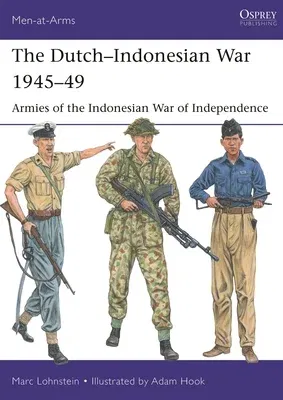Highly detailed and colourful, this account illustrates the struggle
of Indonesian forces in their War of Independence against the
Netherlands, following the surrender of occupying Japanese forces in
1945.
Following on from MAA 521 Royal Netherlands East Indies Army 1936-42
and completing the coverage of the post-World War II wars of
decolonization, The Dutch-Indonesian War 1945-49 describes the
Japanese surrender in September 1945 which left a power vacuum in the
colonial Dutch East Indies (Indonesia). Using vivid colour illustrations
and rare photos, this title depicts the various forces involved in the
struggle for Indonesia: the British Indian Army troops sent to key areas
to disarm Japanese garrisons, the Indonesian nationalists who
immediately proclaimed an independent Republic, remaining Japanese
troops, and the Dutch forces which arrived in 1946.
The wide dispersion of populations, and their ethnic, religious and
political differences ensured that the struggle which followed was
complex. Fragmented bands of nationalist permuda insurgents were
slowly brought together under command of a republican army (the BKR,
later TKR, and finally the TNI, complete with naval and air elements),
but stubborn negotiations alternated with bouts of major fighting.
This book details how the nationalists were defeated by Dutch and
Dutch-led local forces in urban areas (e.g. during Operations Product
and Crow, 1947 and 1948), but how their guerrillas evaded Dutch troops
in the jungle hills and swamps. Illustrating a wide range of uniforms,
insignia, personal weapons and equipment, this study showcases the
troops and armour involved in the conflict.

